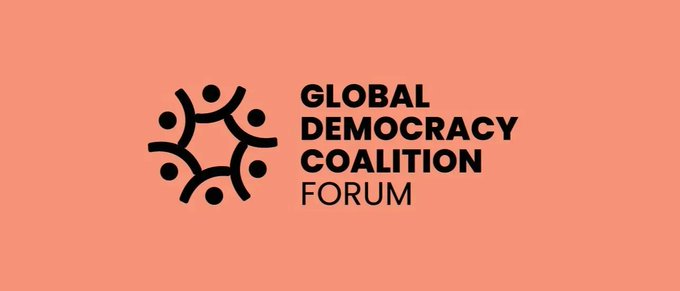A prominent Cold War historian fears that Russia’s invasion, regardless of its outcome, portends a new era of immense hostility with Moscow — and that this new cold war will be far worse than the first.
The Russian president has now definitively put an end to the post-Cold War era, which rested on an assumption that major European land wars were gone for good, argues a professor of historical studies at Johns Hopkins University and the author of “Not One Inch: America, Russia, and the Making of Post-Cold War Stalemate.”
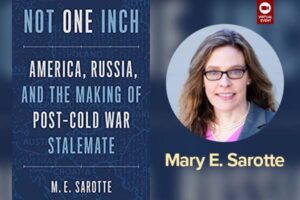 It is abundantly clear from his invasion that Mr. Putin is not going to hold the geopolitical equivalent of a constant airspeed, altitude or course. If, following his reckless lead, his pilots again veer toward NATO aircraft or provoke any of the four NATO member-states bordering Ukraine — whether through showboating or on command — it could drag the West into combat. And not just in a limited way, she writes for The New York Times.
It is abundantly clear from his invasion that Mr. Putin is not going to hold the geopolitical equivalent of a constant airspeed, altitude or course. If, following his reckless lead, his pilots again veer toward NATO aircraft or provoke any of the four NATO member-states bordering Ukraine — whether through showboating or on command — it could drag the West into combat. And not just in a limited way, she writes for The New York Times.
For a generation, placating the Kremlin without applying the tools of hard power became standard operating procedure. Now we — and above all Ukrainians — are paying the price for this mistake, notes Alexander S. Vindman, a former director for European affairs on the National Security Council. Starting today, however, the United States and its allies can begin forming a special relationship with Ukraine, he writes for The Washington Post:
 This partnership could be grounded in the existing NATO-Ukraine Commission — the decision-making body responsible for developing the NATO-Ukraine relationship — and other existing institutions. The cornerstone of this approach would be a new version of the Marshall Plan to rebuild Ukraine’s economy and a 21st-century version of the Lend-Lease Act to support the heroic efforts of Ukrainian soldiers with much-needed lethal aid….
This partnership could be grounded in the existing NATO-Ukraine Commission — the decision-making body responsible for developing the NATO-Ukraine relationship — and other existing institutions. The cornerstone of this approach would be a new version of the Marshall Plan to rebuild Ukraine’s economy and a 21st-century version of the Lend-Lease Act to support the heroic efforts of Ukrainian soldiers with much-needed lethal aid….
Our existing approach to these post-communist transitions was built on the assumption that if the West invests a small amount of money combined with EU and NATO membership and globalization, countries will develop and follow that gravitational pull, add CSIS analyst Daniel F. Runde and Brock Bierman, a visiting fellow for Democracy Initiatives at the German Marshall Fund of the United States. But a new Marshall Plan is needed to secure democratization in the post-Soviet space, they write for The Hill.
Jason Schenker, president of Prestige Economics, a forecaster in Austin, Texas, described the revival of tensions between Western nations and Russia as a second Cold War, The Times adds.
“There’s this competition for global influence and global power, but now the stakes have been raised,” Mr. Schenker said. “We might be in for a protracted battle of sanctions and soft-power diplomacy. And we could see cascading risks of further military action.”
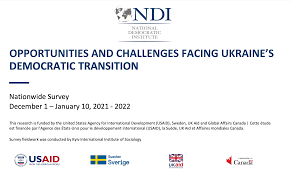 Ukrainians remain steadfast in their commitment to a democratic future, according to new polling by the National Democratic Institute (NDI).* Some 76 percent of respondents want Ukraine to become a fully functioning democracy, with human rights protection, equal justice for all, freedom of speech, and free and fair elections.
Ukrainians remain steadfast in their commitment to a democratic future, according to new polling by the National Democratic Institute (NDI).* Some 76 percent of respondents want Ukraine to become a fully functioning democracy, with human rights protection, equal justice for all, freedom of speech, and free and fair elections.
A majority of Ukrainians support a European future: 58 percent of respondents want to see Ukraine join the European Union; and 48 percent want Ukraine to become a member of NATO. Russian military aggression is perceived as the biggest threat: 60 percent of respondents consider it a big threat to their way of life, while 57 percent cite economic uncertainty.
Some 52 percent of respondents believe Ukraine is going in the wrong direction, significantly more than in July 2021 (46 percent). While demand for change and more government accountability is high, Ukrainians respect the rule of law and expect their leaders to do likewise: 89 percent of respondents believe that the President should always respect the rule of law.
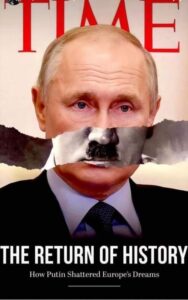 Putin may be the most dangerous man who has ever lived. He is dedicated to restoring Russia’s lost empire, indifferent to the fate of his own people and, above all, master of a vast nuclear force, notes a leading analyst.
Putin may be the most dangerous man who has ever lived. He is dedicated to restoring Russia’s lost empire, indifferent to the fate of his own people and, above all, master of a vast nuclear force, notes a leading analyst.
A war of choice on the children of a peaceful democracy is not an action we in the west can allow ourselves to forget. Nor can we forgive those who started it or those who support it. The memories of our own past must forbid it, The FT’s Martin Wolf writes:
We are in a new ideological conflict, not one between communists and capitalists, but one between irredentist tyranny and liberal democracy. In many ways, this will be more dangerous than the cold war. Putin holds unchecked and arbitrary power. So long as he is in the Kremlin, the world will be perilous. It is not clear whether the same is true of China’s Xi Jinping. But we may yet learn that it is.
Putin has reignited the conflict between tyranny and liberal democracy https://t.co/GkKZpdVSY9
— Democracy Digest (@demdigest) March 1, 2022
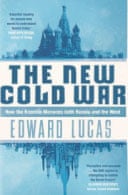 Europe has been shocked out of a post-Cold War era — and state of mind — in which it left many of the democratic world’s most burning security problems to the United States, The Washington Post reports.
Europe has been shocked out of a post-Cold War era — and state of mind — in which it left many of the democratic world’s most burning security problems to the United States, The Washington Post reports.
“It’s the end of an era,” said former Estonian President Toomas Hendrik Ilves, who was once dismissed by a Finnish leader as having “post-Soviet stress” for his hawkish approach to Russia.
“The situation on the ground has led countries to understand neither Biden nor the East Europeans were crazy,” Ilves said.
The invasion has shattered European delusions and self-deceptions, says Carnegie analyst Judy Dempsey. Strategically, however, the EU, with Berlin playing a major role, still has to tackle several uncomfortable issues, she contends:
- First, the union needs a strategic policy toward Eastern partners. This means reassessing the enlargement template and the neighborhood policy, which is still so unclear about its goals. Russia’s invasion of Ukraine begs big questions about the EU’s relations with Moldova, Armenia, Georgia, and of course Ukraine and Belarus. …..
- Second, now that the certification of Nord Stream 2 is stopped and big energy companies, including BP and Shell are quitting Russian ventures, Europe will have to speed up building liquefied natural gas terminals….
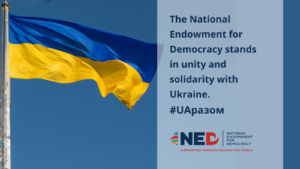 Third, Europe must do much more to support civil society, an independent civil service, and judiciary aimed at weakening corruption, strengthening state institutions, and increasing their security.
Third, Europe must do much more to support civil society, an independent civil service, and judiciary aimed at weakening corruption, strengthening state institutions, and increasing their security.- Fourth, the EU must find a way to evolve into a viable defense and security player that will dovetail with NATO.
What does Russia’s full-scale invasion of Ukraine mean for the future of China-Russia ties? the Atlantic Council hosts (above) an exploration of what the future holds for Xi and Putin’s authoritarian partnership, the likely areas of expanding cooperation, and the implications for the United States and its allies and partners.
We support democracy and human rights in Ukraine and condemn Russia’s invasion, declared @DemocracyIntl with the #GlobalDemocracyCoalition’s @Int_IDEA @CarterCenter @InterActionOrg @RSF_en @ClubdeMadrid @counterpartint @DemoFinland @oslocenter & many allies we #StandWithUkraine️. buff.ly/3HyO0hQ
*The survey was designed and conducted by the National Democratic Institute in Ukraine and the fieldwork conducted by the Kyiv International Institute of Sociology from December 1, 2021 to January 10, 2022.
